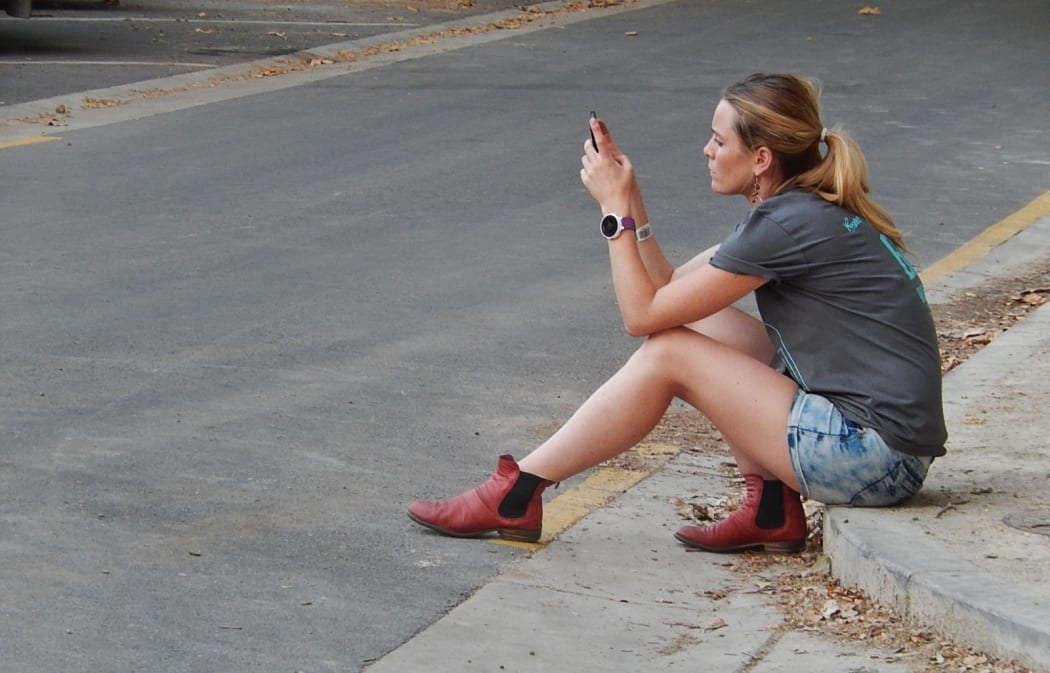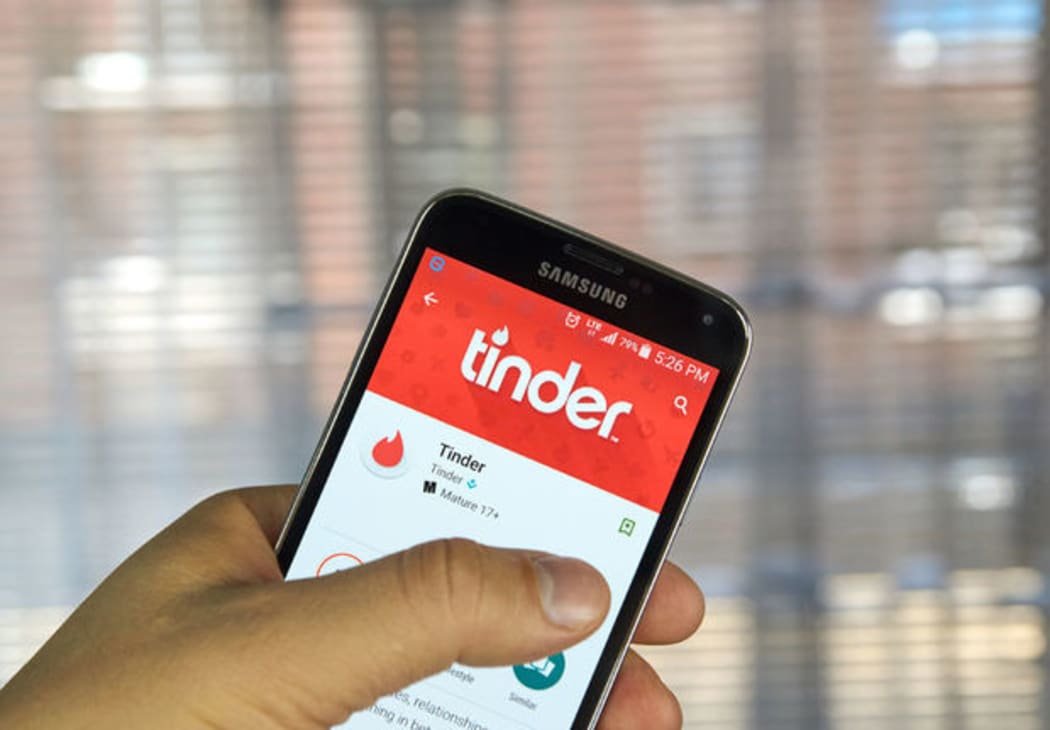Something better may just be a dream.

Photo: Michael Coghlan/Flickr
“Don’t you know, there’s no modern romance.”
Karen O wasn’t singing about Tinder in the closer to the rock band Yeah Yeah Yeahs’ debut album Fever to Tell, but she may as well have been.
Last week, The Wireless spoke to women whose experiences of Tinder featured being bombarded with offensive and aggressive messages by men.
“He said something like, ‘I'm just going to say it, you're not really my type, body-wise, I'm usually into skinny girls, but you have the perfect face to cum on’,” one woman recalled being told.
“I had four separate men dive straight into their desire to play out their inner most fetishes and tell me they wanted to urinate on me,” another said.
There was plenty of feedback to the story, much of which came from men distancing themselves from degradation.
“I've used Tinder for dates, and yes, occasionally, even some short term fun, but in all cases I treated whomever I matched with as a human being,” said Mike Bennett.
“By reading that article you'd think that all men are a bunch of misogynistic, single-minded pigs,” said Kelvin Hampton.
This week we asked men who have used Tinder for years how they view and treat women on the dating app, and consider what that means for modern romance.
DANCEHALL DATING
“I’ve got to get a girlfriend.”
That was Lachlan’s mindset when he downloaded Tinder a couple of years ago.
“I read your story about the crap some women get sent, and while I bet a lot of that goes on, I would never even think about sending messages like that ... even if I wanted to and even if I was blind drunk,” he says.
It’s no different than being in a dancehall in the 1920s, or a ball in the 1950s, and women sitting around waiting to be asked for a dance.
Lachlan has a quick swipe more days than not. Over the past two years, he reckons he’s met more than two dozen women through the app.
“No serious relationship from it, though.”
“I can always feel myself being picky and judging people on things like their clothes or weight or whether I think they’ve chosen overly flattering photos.
“The only sort of serious relationship I’ve had in two years came after I met someone in real life. It’s terrible to think, but sometimes I think if I saw her on Tinder, maybe I would have swiped left.”
There are other aspects of using the app he feels “ashamed to admit”.
“Whenever I’m messaged first by a woman, it puts me off a little bit.
“Again, I’m ashamed to say this, but it makes me feel like they’re a bit desperate.”
Dr Pani Farvid is a senior psychology lecturer at AUT and an expert in contemporary intimate relationships - such as hookup culture and dating apps.
She says conventional heterosexual gender norms are being perpetuated on Tinder and other dating apps.

Dr Pani Farvid, a senior psychology lecturer at AUT. Photo: Supplied
For example, she says there is still a clear, unspoken expectation that men make the first move. “So on Tinder, after a match, women will often wait for the man to message.”
“It’s no different than being in a dancehall in the 1920s, or a ball in the 1950s, and women sitting around waiting to be asked for a dance.”
She says Lachlan’s account isn’t uncommon.
“These traditional and gendered scripts are still playing out, and people are acting in gender stereotypical ways.”
AJ, who spoke to us last week, says nine times out of 10 she waits for men to send her the first message. Only when “the guy might look approachable” would she message first.
“I just feel like if the guy is interested enough he'll get in touch.”
PLAY THE GAME
Mark was a latecomer to Tinder.
After a long term relationship came to an end, he “didn’t fancy the Auckland club scene” and downloaded the app. He describes himself as “a pretty average guy - square and 5ft next-to-nothing”.
“I’m not going to lie, I guess my main aim was to get laid,” he said. “I pretty much got almost no matches at first, and those I did get, the conversation would usually fizzle out after a few messages.”
It’s pretty shit, but if I match with a few women at once, I have a lazy habit of just sending the same opening line to all of them to see if one responds.
The 27-year-old says he quickly concluded the main problem with Tinder is how “unforgiving and hypercritical everyone is”.
“One mistake or comment or opinion someone disagrees with and the convo is over - that goes both ways for men and women.”
He says he’s always tried to act on Tinder how he would in reality. But after awhile, he found himself playing the game. “I shed about 10 kg and updated my profile with new photos, including a progress shot, and got a lot more matches,” he says.
Lachlan is a lot more savvy now too.
“When I message a woman and get no response, or she ‘ghosts’ a conversation (it happens a lot), at first it really got to me and I would curse under my breath, but now I really couldn’t care less,” he says.
“It’s pretty shit, but if I match with a few women at once, I have a lazy habit of just sending the same opening line to all of them to see if one responds.”

There are more than 50 million Tinder users. Photo: RNZ
THE CHOICE PARADOX
Dr Farvid describes Tinder as a “reduced cue environment”. “There’s a big difference between judging someone’s attractiveness in a small 2D picture on your phone, than when you are in someone’s physical presence.”
“Desire, attraction or chemistry can be quite hard to explain - it’s much easier to feel a spark in person.”
Lachlan, 27, worries that because he’s been on so many dates and met so many different women in a romantic context, for him, romance may be dying.
Technological dating is basically like picking up a shopping catalogue where users are searching for intimate partners.
“Look, I have met some really cool people through Tinder,” he said. “But I’m also more sceptical of women - just because Tinder is how we met. After going out a few times I wonder if there’s someone better waiting for me to swipe right.”
Online and mobile dating offers the ultimate choice paradox, says Dr Farvid. “The more choice users have, the harder it is to actually choose or settle on one thing.”
“With Tinder, people might think there is always the potential for something better out there, which can create unrealistic standards or the inability to choose or commit to one person.”
But something better may just be a dream.
“Technological dating is basically like picking up a shopping catalogue where users are searching for intimate partners,” she says.
“Sometimes, it can seem like there is an endless supply of people to meet, so this can change the way people approach others and dating or sex.
“It could also mean that people get quite strategic in the way they approach people and it becomes more of a game rather than a mutual and relational exchange.”
‘THIS IS NOT SOMETHING MEN WORRY ABOUT’
One of the women The Wireless spoke to last week said she was tired of “dudes who put the cards on the table and immediately ask if I want to go to their place to ‘fuck’”.
“I'm not going to say it's all bad and I have friends who have met lovely people on there, but there are definitely lots of deviants who think they can try their luck at getting a casual ‘bang’,” said Laura.
I don’t say anything to them because it just does seem like a game, but I don’t think it’s cool and they need to have better manners.
Mark says he has male friends who “can be sleazes and proposition a woman straight away - usually when they’re drunk”.
“I don’t say anything to them because it just does seem like a game, but I don’t think it’s cool and they need to have better manners,” he says.
“On the flipside, in my experience, women on Tinder can be hypercritical and quite rude at times - I’ve had a few comment on my size. You wouldn’t say something like that in real life.”
Lachlan insists his messages are always PG-rated.
“That being said, now and again I do send some flirty messages like ‘what’s the dirtiest thing you’ve ever done?’ But I don’t consider myself sleazy and I’ve never directly asked someone for sex on Tinder.”
A study led by Manchester Metropolitan University last year found most men who use Tinder believe they are “behaving honestly”.
Many of the study’s male respondents said they often felt women misrepresent themselves on the app, and thereby they felt “entitled to have casual sex to compensate for the 'breach of trust'”.
This led to intimacy being both sped up and undermined.
“I think if there's a chance of a shag I'll take it. Lots of girls put 'no one-night stands' on their profiles, but they still end up having them,” said one of the study’s participants.
“Although of course, men engage in [misrepresentation] as well,” says the study’s lead author, Dr Jenny van Hooff.
Tinder and mobile dating is still a relatively new thing and its norms are still evolving.
“People can be more brief, crude or brutal, which could make for a very unpleasant experience,” says Dr Farvid.
Sam last week told us she was bombarded with about 30 messages from one guy over a few months. She kept them to show people how crazy some Tinderers can be.
“One thing that is markedly different when it comes to men’s and women’s Tinder use is the sense of risk and danger,” says Dr Farvid.
“Women are always aware of the possibility that they might be in serious danger in the dating world, including on Tinder, so many of the women we talk to say ‘I hope he’s not a rapist or a serial killer!’
“This is not something men worry about.”
WORLD OF CONVENIENCE
There is a distinct lack of research about Tinder's use.
The Manchester Metropolitan University study concluded that while Tinder has made relationships more available, it has also "commodified" them.
In many respects, dating apps appear to accentuate traditionally gendered norms, rather than providing a space that's removed from wider gender inequalities.
“The self-promotion encouraged by digital culture appears to undermine authenticity in romantic encounters, often leading to disappointment in our participants' experiences,” says Dr van Hooff.
“In many respects, dating apps appear to accentuate traditionally gendered norms, rather than providing a space that's removed from wider gender inequalities.”
As of last year, there were more than 50 million Tinder users and rising. Everyone knows someone who swipes. Some of us have a younger brother or sister, or niece or nephew who will soon download it.
Another Facebook response to last week’s article was “I found the most amazing man in the world on Tinder, he's a gentleman”.
There will be modern romance, but considering there have been more matches on Tinder than people on the planet - 10 billion - the app is causing more harm than good.


